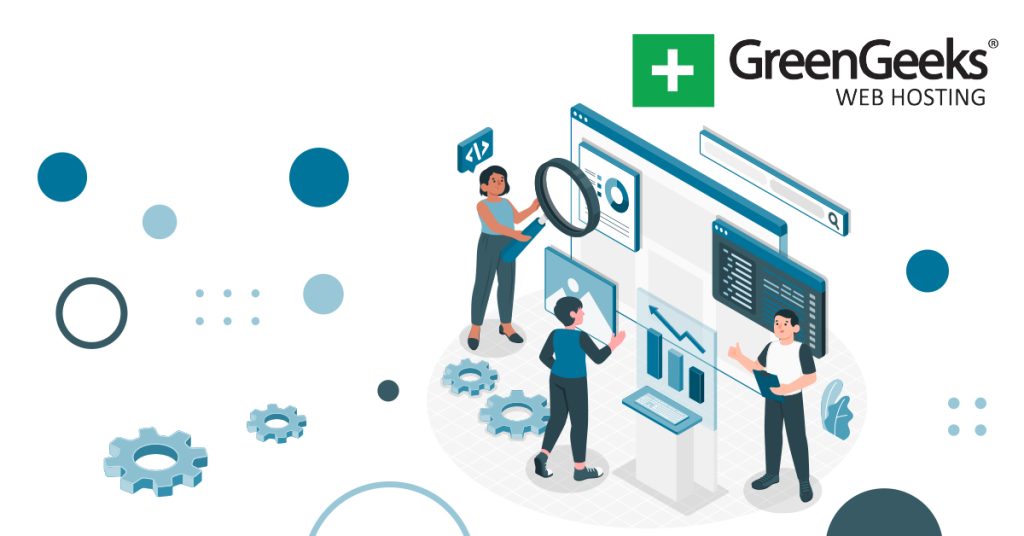With just a few simple changes in your habits, your productivity at work can significantly increase. In today’s busy world, being productive is very important. But for most people, it’s easier said than done.
Many of us face the same problems at work. We get distracted, we have too much to do, and we end up feeling busy but not really getting much done. These issues can make us feel stressed and like we’re not doing our best.
But there’s a way to fix this.
This article is here to help with that. We’ll talk about simple habits that can make a big difference in how much work you get done.
Without further ado, here are 23 of the simplest but proven habits to boost your productivity at work.
1. Plan Your Day Ahead
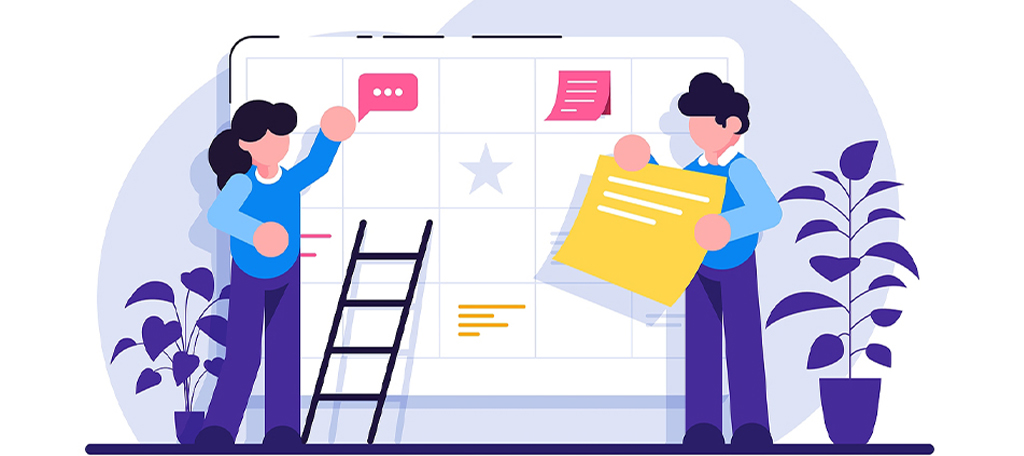
A basic habit for getting things done is planning your day ahead of time. Knowing your schedule beforehand lets you carefully review what each task needs.
Practice the simple habit of writing down the task you need to be done at the start of your day.
A good tip if you are just starting is to list the three immediate things you need to do after you wake up. This simple method can give you a jump start to a productive day.
Getting into this habit fosters productivity. You become more intentional about how you spend your time. You get good at getting things done quickly if you carefully plan your day. It’s a step toward becoming a more productive person.
2. Apply the Eisenhower Matrix
Based on Dwight Eisenhower’s decision-making method, this matrix helps figure out what tasks are most important.
A simple 2×2 square is used to make this matrix. One axis should be marked with “Important” and “Not Important,” and the other should be marked with “Urgent” and “Not Urgent.”
This simple setup makes it easy to organize your tasks by how important they are and how quickly they need to be done.
If tasks aren’t important or need to be done right away, you might want to skip them. Pay attention to tasks that will help you be more productive and efficient overall.
Often overlooked, yet crucial, are tasks labeled as important but not urgent. Many find themselves underinvesting time here. Prioritizing these tasks cultivates impactful habits for productivity.
3. Compile a Distraction List
When you’re trying to get things done, a long list of things to do can get in the way. Things such as emails and social media notifications can easily get in the way of deep work or even small tasks, which makes it harder to work efficiently.
The best way to deal with these distractions is to make a distraction list. Whether it’s a digital file or a real paper document, keep it close by while you work.
Write down any thoughts that are taking your attention away from your task, and then go right back to it.
Often, distractions can appear as work-related tasks that you can’t avoid. Keeping a distraction list helps you quickly organize tasks and work more efficiently.
4. Just Start
Simply starting, even if you’re not inspired or motivated, is very important. Getting over procrastination usually starts with taking that first step, no matter how small, which breaks down the mental block that is stopping you from moving forward.
Feeling unmotivated or uninspired? Start with the smallest thing. Create a simple list, write a few words, or scribble down your thoughts on a piece of paper.
Any small action of starting something gives you the energy to work on bigger problems or a long list of things to do.
5. Give Yourself a Break
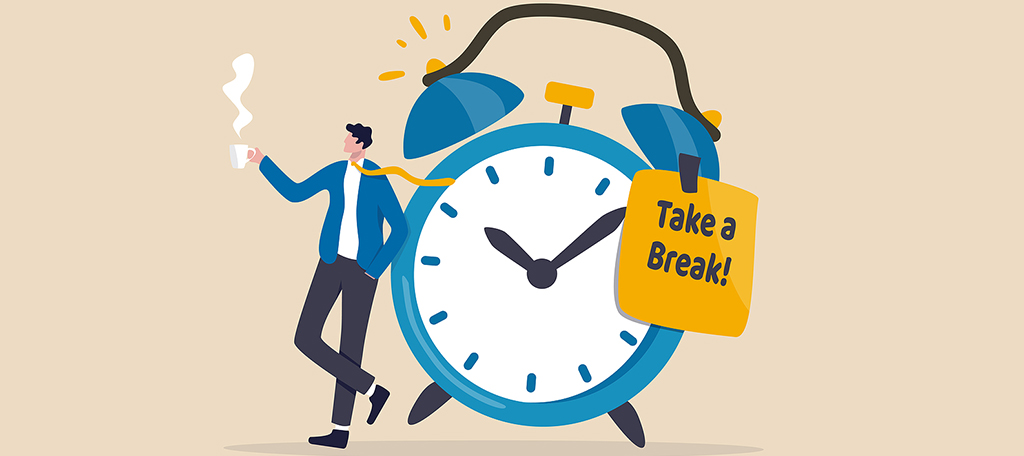
It might seem counterintuitive, but creating habits of taking regular breaks in your workday can boost productivity.
Why are breaks so crucial? First, they provide your brain with much-needed rest. Continuous work can lead to mental fatigue, making you less effective over time.
Breaks also offer an opportunity to reassess your approach to tasks. Stepping away for a few minutes allows you to return with a fresh perspective. This fresh perspective can often lead to more innovative solutions and a more efficient way of tackling tasks.
Implementing this habit into your daily routine is straightforward. The key is consistency and moderation.
Short breaks, lasting 5 to 10 minutes every hour, can dramatically improve your focus and efficiency. These short pauses can be as simple as stretching, taking a brief walk, or just stepping away from your workstation.
6. Implement the 80/20 rule
Also known as the Pareto Principle, the 80/20 rule suggests that 80% of your results come from just 20% of your efforts. This idea can change how you approach your work and is a key habit in boosting productivity.
First off, the 80/20 rule helps you figure out which tasks are the most important. It’s about finding the 20% of your work that gives you the biggest results.
This is a smart way to stay productive, as you’re not wasting time on things that don’t have a big impact.
To make this rule work for you, you’ll need to take a good look at what you do. This might take some time, but it’s worth it. Once you know, you can spend more time on these tasks and less on others.
7. Finish One Task at a Time
The ability to multitask is often praised at work, but did you know that focusing on one task can actually boost your work productivity?
This might sound surprising, but it’s true. Focusing on just one task at a time is a key habit in increasing your productivity at work.
When you do just one thing at a time, you’re not constantly switching between tasks. This means you can give your full attention to what you’re doing. Better focus leads to better work, as you’re less likely to make mistakes.
Then there’s the speed factor. Doing several things simultaneously saves time, but it can also slow you down. When you focus on one task, you can get it done faster and move on to the next more quickly. This is a simple but effective way to work more efficiently.
Lastly, this approach also makes work less stressful. Juggling multiple tasks can be overwhelming. By sticking to one task, you reduce that stress.
8. Learn to Politely Decline
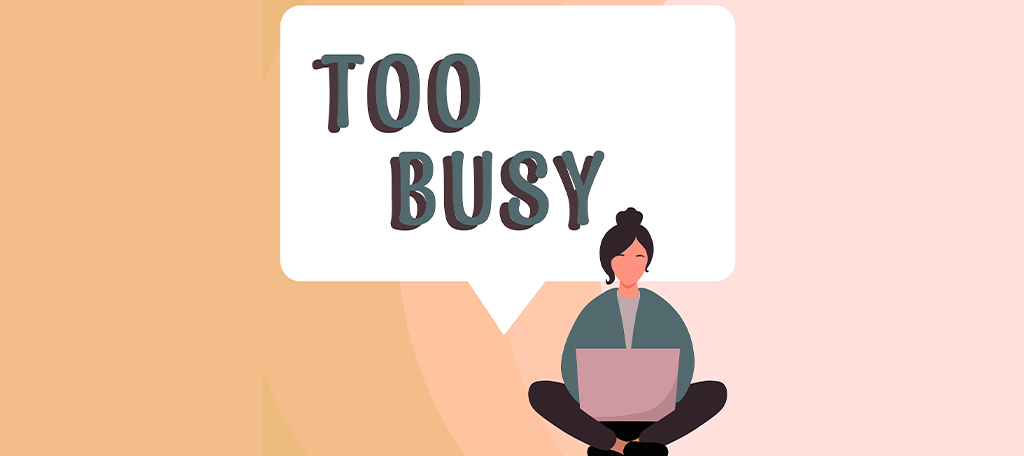
Refusing to lend a helping hand at work might seem tough, but it’s a great habit for boosting your productivity. This doesn’t necessarily mean you’re being unhelpful. Rather, it’s about knowing your limits and focusing on what’s really important.
When you say no to tasks that aren’t a priority, you’re not spreading yourself too thin. You’re giving your best to the tasks that truly matter.
Also, saying no helps to keep your workload manageable. This is important because taking on too much can lead to stress and burnout. By choosing your tasks wisely, you can stay productive and happy at work.
Lastly, learning to say no also earns you respect at work. When people see you’re clear about your priorities, they value your time and effort more. This respect can make your workplace nicer and more productive for everyone.
9. Manage Your Energy Equally with Time
To work more effectively and sustainably, align your tasks with your natural energy levels. Some use the idea of an Ultradian Rhythm as part of their habits to improve productivity.
The first step in managing your energy is to recognize your personal energy patterns. Everyone has times in the day when they feel more alert and energized.
It’s best to identify your peak energy periods so you can schedule your most demanding tasks during these times. This ensures that you’re working on challenging tasks when you’re at your best.
Conversely, it’s equally important to recognize when your energy dips. During these lower energy periods, you can tackle less demanding tasks or take breaks. Doing so can prevent burnout and keep your productivity levels high.
10. Set Specific Times for Email
Work emails can take up a lot of your time. They can distract you from more important tasks.
With this, setting fixed times for checking your emails helps you stay focused. It’s a vital part of knowing how to be productive and not getting lost in your inbox.
Checking your emails could be in the morning, midday, and before you finish for the day. This way, you can focus on your work without being interrupted by every new email.
It’s also best practice to clear your inbox every day. It means you sort, reply to, and clear out all your new emails during these set times. This keeps your inbox under control and makes sure you don’t miss anything important. It can also make you feel more organized and less stressed.
When you do check your emails, think about which ones need a quick reply and which ones can wait. This helps you deal with your emails more effectively. You can make sure urgent things get done right away, and less important emails won’t take up too much of your time.
11. Create Your Own Pre-Work Rituals
Incorporating a pre-work ritual is a simple yet powerful habit that can significantly enhance your productivity at work. This practice involves setting aside a few minutes before starting your workday to engage in an activity that helps you focus and prepare mentally.
Your pre-work ritual could be anything that calms and centers you. For some, it might be a few minutes of meditation or deep breathing. Others might prefer a brief period of reading, listening to music, or even a short walk.
The key is to choose an activity that clears your mind and helps you transition into your work mode with a sense of calm and focus.
These rituals play a significant role in mentally preparing you for the day. It creates a clear boundary between your personal time and work time, signaling to your brain that it’s time to shift gears.
12. Tidy up Your Workspace
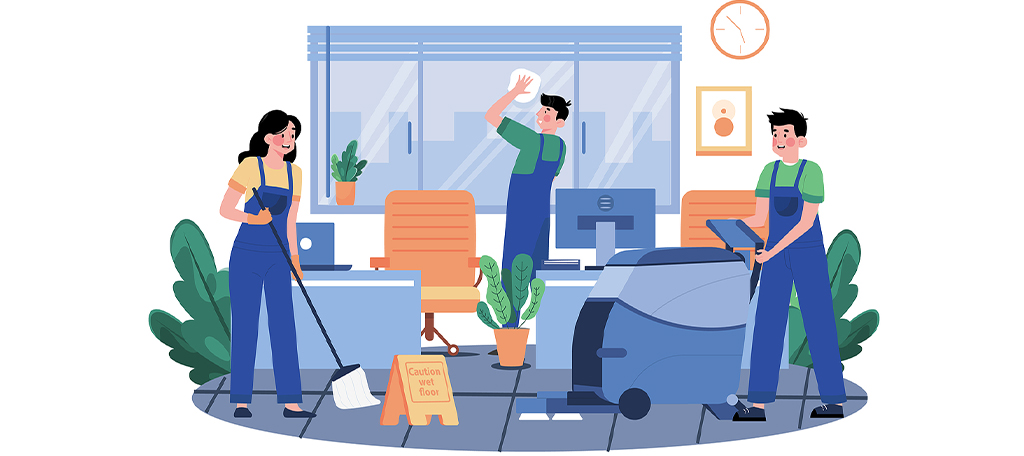
When your desk is organized, you’re not just making it look nice. You’re setting up a space that helps you focus and get things done.
Imagine not having to sift through piles of papers to find what you need. This saves time and lets you focus on your work. Being organized is vital to being efficient.
A clean workspace also makes you feel better and less stressed. When your desk is neat, you feel more in control.
As far as habits go, a clean workspace can do wonders for productivity. You can begin by just tidying up your desk at the end of each day. Keep only what you need on your desk. In the long run, these small steps can make a big difference in your work.
13. Automate Your Workflow Using Productivity Apps and Tools
Think about how automation can help with your work. In marketing, for example, things like following up with leads and planning posts for social media become easier. It speeds up work and makes time for strategic planning and creative projects.
When it comes to email management, you can also use filters to sort new emails into folders based on certain rules. This cuts down on clutter and makes things easier to find.
Scheduling tools like Calendly or Doodle can also simplify meeting arrangements by automatically syncing availability.
Overall, embracing technology is a hallmark of productive individuals. Finding the right ones and adding them to your workflow is one of the most important habits you can develop to make your work more efficient while boosting productivity.
14. Learn to Delegate or Ask for Help
Delegating tasks strategically is an essential habit for productivity. Through delegation, you look for the best person to do the job if you are in the position to do so.
Finding the right fit for a task is a talent in itself. Someone good at taking notes, for example, might be perfect for writing down details from meetings. Giving this task to someone else lets you focus on your meeting duties, which makes you more productive.
Collaborating with your team makes sure that tasks are done quickly and well, while also encouraging teamwork and understanding between people.
When trying to get into productive habits, it’s important to be aware of your limitations. No one can do everything by themselves. It’s okay to seek help when tasks overwhelm your capacity; this is where delegation comes in handy.
15. Go Green in your Workspace
Habits centering around a green environment can do wonders for your productivity and work efficiency.
You can go green by adding plants to your workspace. Studies reveal a significant improvement in thought processes when plants are present.
Going green doesn’t mean turning the office into a jungle. Having ample sunlight through open windows also positively affects productivity, aligning with a more nature-inspired focus.
16. Promote Fitness and Exercise
Physical activity goes beyond shedding pounds or achieving a beach-ready physique. Exercise enhances your thinking skills, and engaging in a consistent exercise routine can help you stay focused on your daily tasks.
Consistently exercising not only boosts brainpower but also provides enduring energy throughout the day.
Furthermore, exercise serves as a great tool for managing stress, particularly when adhering to a rigorous routine. Intensive workouts prompt the body to release endorphins, acting both as a pain reliever and a mood enhancer.
While mornings are optimal, you can opt for several brief exercise breaks during your work sessions to maintain an active lifestyle.
17. Use a Timer (with the Pomodoro Technique)
Incorporating the use of a timer, especially through the Pomodoro Technique, is an effective habit for anyone looking to boost their productivity at work.
The Pomodoro Technique typically consists of 25-minute work intervals, known as Pomodoros, followed by a 5-minute break.
These short bursts of focused work time encourage a high level of concentration that makes it easier to stay on task and maintain momentum. This structure helps to break down work into manageable segments, preventing feelings of overwhelm that can often accompany large, complex tasks.
One of the key benefits of using a timer is the psychological effect it has on your work ethic. Knowing that your work session has a defined endpoint, you’re more likely to stay focused and push through distractions.
18. Batch Similar Tasks Together
When you switch from one kind of task to another, it takes time for your brain to adjust. This can slow you down.
On the other hand, you reduce your cognitive load when you focus on similar tasks in one go. This focused approach allows for deeper concentration and can significantly enhance the quality of your work.
Planning your day becomes easier with task batching. You can set aside specific times for emails, calls, or creative work. This makes your day more predictable and less stressful. You know what to expect and can prepare better, which helps you work more efficiently.
Doing similar tasks together also keeps things organized. When you know you have a time set for a certain type of work, you can get everything ready in advance. This way, when it’s time to start, you can dive right in without wasting time looking for what you need.
19. Limit Meetings (and Take Walking Meetings If Possible)

Many of us spend a lot of time in meetings that might not always be necessary. By choosing only important meetings with clear goals, you can save a lot of time.
Before you agree to a meeting, think about if it’s really needed. Could the same thing be sorted out with a quick call or email? If you do need a meeting, make sure it has a clear plan. This keeps the meeting on track and stops it from taking up too much time.
Try walking meetings too, especially for smaller groups or one-on-one chats. When you walk and talk, it can make you think more creatively. It’s a different approach from sitting in a meeting room, and new ideas can come more easily through it. Plus, it’s good for your health to get up and move around.
Walking while meeting also makes things feel more relaxed. It’s easier to chat and share ideas when you’re walking side by side, rather than sitting across from each other.
20. End Your Day with a Review
Ending each workday with a brief review session is a habit that can significantly enhance your overall productivity.
The review process starts by looking back at what you accomplished during the day. This reflection helps you recognize your achievements, no matter how small they may seem.
It also involves identifying tasks that were not completed and understanding why. Perhaps a task took longer than expected, or unexpected duties arose. Understanding these patterns helps in better planning and time management for future workdays.
21. Set Realistic Deadlines
Having realistic deadlines helps in managing tasks efficiently, reduces stress, and fosters a positive work environment. It’s perhaps one of the best habits you can create for productivity as you’re putting less weight on your shoulders.
To start, take a good look at what you need to do. Think about how complex the task is and how long it will take.
If you set a deadline that’s too soon, it’ll just stress you out. But if it’s too far away, you might not feel pushed to get it done. The right deadline gives you enough time to do a good job without rushing.
Knowing how you work best is also key. Everyone has their own pace. When you set deadlines that match how you work, your tasks feel more doable.
Lastly, it’s important to talk to your team and bosses about your deadlines. This way, everyone knows what to expect and when. Good communication like this builds trust and helps everyone work better together.
22. Stay Hydrated and Eat Healthily
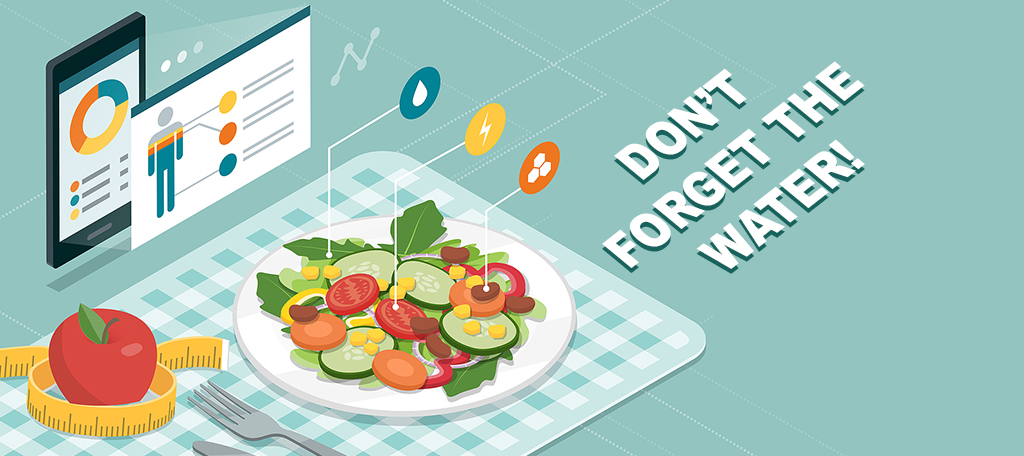
One of the simplest and most effective habits to get into for productivity is staying hydrated and eating healthy foods.
When you’re hydrated, your brain functions at its best. Even mild dehydration can lead to reduced concentration, increased fatigue, and decreased cognitive abilities.
Similarly, the food you consume significantly impacts your energy and concentration. Opting for nutritious meals rich in vegetables, fruits, whole grains, and lean proteins provides a steady supply of energy.
By eating a balanced diet, you can also avoid the peaks and crashes associated with sugary snacks and high-caffeine drinks. It keeps you alert and focused, making it easier to manage your workload efficiently.
Integrating these healthy habits into your daily routine is simple yet impactful. Start by keeping a water bottle at your desk and setting reminders to drink if necessary. For meals, preparing them in batches, ideally during weekends, can be a game-changer.
23. Dedicate Time to Learning and Improving
Setting aside time to learn new things and get better at what you do is a key part of developing habits that make you more productive.
Having a growth mindset will enable you to consistently set aside time each day to learn new things or improve the skills you already possess. This will allow you to set yourself up for success.
You can set aside a specific time each week for online courses or workshops related to your field. Making a conscious decision to keep learning makes it easier to keep up with changes in your workplace.
FAQs About Productivity at Work
Productive work habits include managing your time well, sticking to a routine, and focusing on your work so that you can get things done quickly. They include organized approaches, the ability to adapt to change, and a dedication to always getting better so that people can do their best at work and reach their goals.
Improved productivity means achieving higher output or results within the same timeframe or with fewer resources. It involves enhancing efficiency, effectiveness, and output quality in tasks or processes.
Habits are important for productivity because they make tasks easier and eliminate the need for constant decision-making. They make things consistent and organized, which lets you use your time and resources more effectively.
To enhance success through improved habits, start by making clear, attainable goals for yourself and creating a routine that will help you reach these goals. Develop consistency by doing habits regularly and adding new behaviors to your daily life slowly.
Being more productive leads to increased efficiency, which can significantly impact personal and professional success. Overall, work productivity boosts profitability in businesses.
Even though being productive can help you get things done faster, it doesn’t mean that you did them right. It’s important to be efficient at work because it can save time and money.
Technology can significantly boost productivity by automating tasks, streamlining communication, providing collaboration platforms, and giving people a wide range of tools for managing their time and tasks.
Final Thoughts
Enhancing your productivity habits at work doesn’t require monumental changes. Instead, it’s the small, consistent habits that make the biggest difference.
Now, as you move forward, I encourage you to take these insights and put them into action. Start with one habit, see the difference it makes, and then build on it.
Productivity is a personal journey, and what works for someone might not work for another person. So it’s your job to experiment, adjust, and find your unique habits for enhanced productivity.

